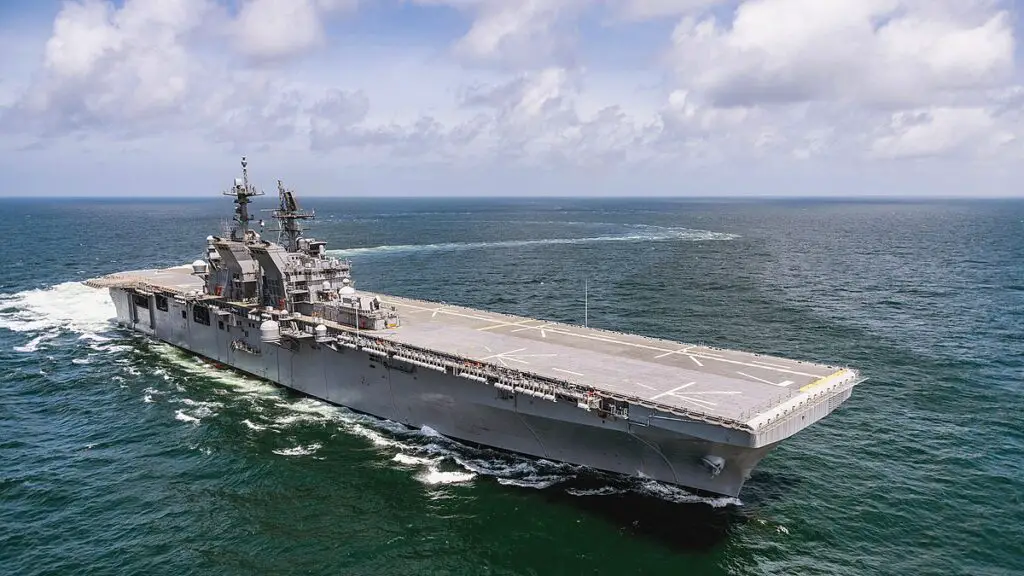Auto Amazon Links: No products found. Blocked by captcha.
Damen provides POLA Class vessel to the Mexican Navy:
The POLA is Latin America’s most scientifically advanced vessel. POLA would allow the United Mexican States, within the 5 million square kilometers of Mexican jurisdictional waters
According to Mr. Verhelst, the Damen stan patrol vessel was launched in record time, less than three years after the signing of the deal. Cooperation between the Mexican Navy, Damen, subcontractors, and vendors, both local and foreign, has been outstanding. This has allowed the technologies vital to the progress of the project, combined with a modular design.
Offshore patrol ships in service with the Mexican Navy are Holzinger-class patrol vessels. They are a Mexican style based on the Uribe class built-in 1982. Patrol vessels of the Holzinger class have a narrower helicopter deck than the Uribe class and have main armaments at the place. Onboard, they are able to operate MBB Bo 105 helicopters.
History:
With the formation of the Ministry of War in 1821, the Mexican Navy has its roots. It operated in the Organic Ministry jointly with the Mexican Army from that year until 1939. Mexico has been in a perpetual state of war since its declaration of independence from Spain in September 1810. Therefore in order to displace the last surviving Spanish armies from its waters, its priority was to acquire the first fleet from the United States.
In several naval wars, the Mexican navy aircraft carrier has engaged in protecting and defending the interests of Mexico. Four of the wars of highest significance were:
- Spain’s efforts at reconquering Mexico
- The takeover of the fort (1821-1825) of San Juan de Ulúa
- The Cabo Rojo invasion (1829)
- Mariel’s Fight
As inshore long-range patrol boat (IPVs) and offshore patrol vessels (OPVs), they may be narrowly categorized. Usually, they are warships smaller in size than a corvette and can include fast strike craft, torpedo ships, and missile ships, but others are as big as a martadinata-class frigate.
Sea Trials of Damen Mexican Navy new Frigate Complete:
Damen Shipyards Company, the Mexican Navy, and manufacturers have completed successful sea trials of the POLA-class. The completion of these sea trials indicates the success of the project as a whole on schedule and in turn, a few weeks ahead of the contracted timetable.
The ARM Reformador is the latest example of how Damen establishes alliances to create naval long-range patrol boats in local yards with navies across the globe. In this way, the Dutch shipbuilding firm uses its vast knowledge and skills to develop technology in the shipyards of Damen customers.
Local effect on the economy:
Over the last decade, Damen has established a close friendship with the Mexican Navy. This has resulted in more than ten naval vessels of diverse designs being designed and shipped. Damen has also worked with yards such as the Salina Cruz, where the Weapon Reformador was made.
These joint efforts ensure a large transition of technologies and expertise to the shipbuilding industry in Mexico. In order to optimize the local effect of this new undertaking, for example, Damen has put supply and assistance contracts with local firms during the construction of ARM Reformador. Over the last decade, Damen has established a close friendship with the Mexican Navy. This has resulted in more than ten naval vessels of diverse designs being designed and shipped.
Mexican navy submarine:
Mexico has an official stance on non-aggression. In general, Mexico’s Navy specializes in anti-smuggling and search and rescue. A submarine obviously doesn’t perform all of these missions well and costs a lot more than several patrol boats to procure, run, and repair.
Does Mexico have an air force?
It has a transport fleet consisting of 35 planes, including one Boeing 757, three Boeing 727, and seven Hercules C-130. 13 In total, about 32 different kinds of aircraft are maintained by the Mexican Air Force. There are no proposals for the Mexican government to procure Russian-made helicopters.
Auto Amazon Links: No products found. Blocked by captcha.

